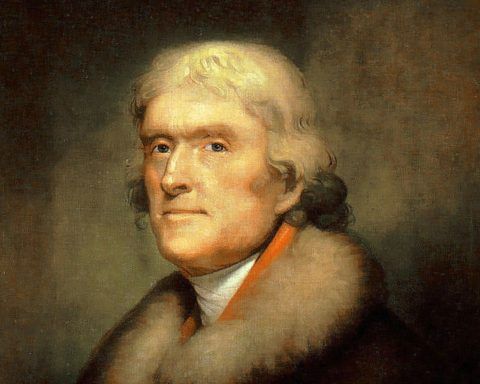The concept of Presidential Doctrine dates back to when James Monroe adopted a posture of anti-European colonialism in the western hemisphere. Since that time many presidents have come and gone without leaving a signature stamp on the attitude and behavior of our nation vis a vis foreign policy though many have at most sought to merely modify pre-existing positions. Theodore Roosevelt took Monroe’s doctrine and mutated it into the Roosevelt Corollary which would later be reversed by his fifth cousin, Franklin Roosevelt who adopted a Good Neighbor policy toward those nations in the Central and South America.
In relatively short time, the neocon wing of the Republican Party hijacked our government and set about reinvigorating the interventionist ambitions of Teddy Roosevelt’s Big Stick Diplomacy. Under Ronald Reagan and George H. W. Bush, America ceased speaking softly and carrying a big stick; it raised its voice and started actively using the stick in places like Grenada and Panama and various other Latin countries that failed to fall in line with US hegemony.
The tools for imposing American interests on our southern neighbors covered a spectrum from military adventurism against unfriendly tyrants to prolific support of those tyrants who came to heel with the agenda of Washington, D.C. One of the more notorious yet under-reported examples is President Reagan’s enthusiastic support for Guatemalan dictator and mass murderer, Rios Montt.
Support for friendly autocrats and undermining those who stand up for themselves hasn’t been confined to Central and South America. The United States’ history with the Middle East is a stark reminder that our reach will not be confined to the western hemisphere. Our national interests are wherever we seek them out and if they be jeopardized they will then take on the expanded definition of national security interests. Such a mindset was delineated by President Carter in his January 1980 State of the Union Address when he outlined his doctrine, crafted in large part by rabid anti-Russia fanatic Zbigniew Brzezinski and based on the model of President Truman’s anti-Soviet stance. President Carter sought to prevent an expansion of Russian influence in the Persian Gulf where US oil interests constituted pretext enough to threaten outright military action to quell any challenge to American dominion in the region.
Almost four decades later we can easily see the Carter Doctrine has been as successful as the rest of his ineffectual presidency, that is, it has been a complete failure. The Soviet Union is long gone but Cold War fears fester still as Moscow has found a foothold in Syria where it seeks to exert greater strength in the absence of anything resembling clarity of vision in Washington, D.C. President Obama’s limp-wristed red line was an easily called bluff that served to further embolden Vladimir Putin and the apparatchiks in the Kremlin. It’s taken nearly four decades for the Carter Doctrine to totally implode but it has taken only four years for the Obama Doctrine to collapse.
Former Secretary of State John Kerry and pathological liar Susan Rice assured the world that Bashar al Assad’s chemical weapons stockpile was eliminated. They assured us that the threat of force was stronger than the use of force to compel compliance from a regime hell bent on retaining power at the price of violating every multi-national dictum meant to preserve the life and dignity of mankind the world over.
Obama’s failure to realize military intentions in Syria was compounded by the failure of his administration to make good on their declarations that Syria was stripped of its weapons of mass destruction. The Obama Doctrine wasn’t a doctrine at all, it was a clinic on how to empower deceptive despots by way of Chamberlain-esque tactics of appeasement; front and center is the humiliating display of prostration best known by its colloquial moniker, The Iran Deal.
Obama’s defeat at the hands of Damascus and Tehran is an echo of President Bill Clinton’s defeat by Pyongyang after he assured us twenty years ago that his nuclear agreement with North Korea would, “help to achieve a longstanding and vital American objective: an end to the threat of nuclear proliferation on the Korean Peninsula. This agreement is good for the United States, good for our allies, and good for the safety of the entire world. It reduces the danger of the threat of nuclear spreading in the region.”
The Carter Doctrine and attempts by his Democratic successors to the Oval office to solidify their international legacy, have all gone up in flames. The Middle East is worse now than ever before, Russia is flexing its muscle in the region, and North Korea has proliferated their nuclear weapons arsenal and is honing their ability to send such a weapon to our shores. Out of this milieu of mayhem comes the Trump Presidency and the development of his new attitude toward our neighbors and how best to deal with them.
First came the unilateral Tomahawk missile attack against a Syrian air base after reports of Assad’s most recent use of chemical weapons against his people. President Trump had signaled previously that no attack would be forthcoming and that any such use of force would require congressional approval. He was absolutely correct and we should all be wary of the enlargement of war-making powers in the executive branch. But he was also adamant that he would not telegraph our tactics. The element of surprise is essential to the Trump Doctrine.
Second, President Trump’s pivot on the use of force against the Assad regime also demonstrates his flexibility and willingness to adapt to changing circumstances. A president who is rigidly devoted to a failed policy is not a president worthy of the title Commander-in-Chief. The president must be ready to abandon previously held positions if new information requires a shift in demeanor and action.
Third, on the heels of the strike came widespread international approval for President Trump’s willingness to send a signal to the Assad regime. Nations like Canada, France, Japan, Poland, New Zealand, Spain, and the United Kingdom praised President Trump’s resolve and readiness to demonstrate the moral and military superiority of the US over murderous tyrants clinging to fragmented power. Rather than build a coalition through a fractious multi-national body like the United Nations, President Trump acted first and the coalition built itself later.
Fourth, President Trump has thus far remained true to his pledge to not engage in nation building in the Middle East. He has not attempted regime change in Damascus. His strike against the airbase is akin to punishing a dog for defecating on a carpet. You don’t put the dog down when it errs, you strike it on the nose with a rolled up newspaper. The strike signals a punch-for-punch strategy meant to alter Assad’s behavior rather than completely remove him from power. Compared to the debacles in Iraq and Libya, this approach is a refreshing departure from the neocon doctrine of scorched earth and destabilized nation states.
Fifth, and perhaps most important, President Trump used the Syria strike to announce to the world that the threat and use of force will be used, judiciously at first, to oblige obedience from obstinate foreign actors determined to use their power for evil. It has been reported that President Trump made Xi Jinping aware of his order against Syria during the Chinese President’s recent visit to the US. Shortly after we’ve begun to see movement from the Chicoms away from playing the part of patron to their malnourished allies in North Korea.
Time will tell if the Trump Doctrine will remain consistent and ultimately be successful. If President Trump remains consistent he’ll keep his cards close to his chest, his use of force will be surgical, without warning, and not intended to topple whole governments (though with North Korea we may need to unseat the fanatical Kim dynasty). If he remains consistent his doctrine will be a success, not because he over-indulged in the use of force, but because his limited military engagements will be largely symbolic. They will be a taste of what we’re capable of and what we’re willing to do.
It would be best for the Assads and Kims of the world to not test President Trump.










Great job President Trump.
Good historical summation and an accurate forecast of what might be coming.